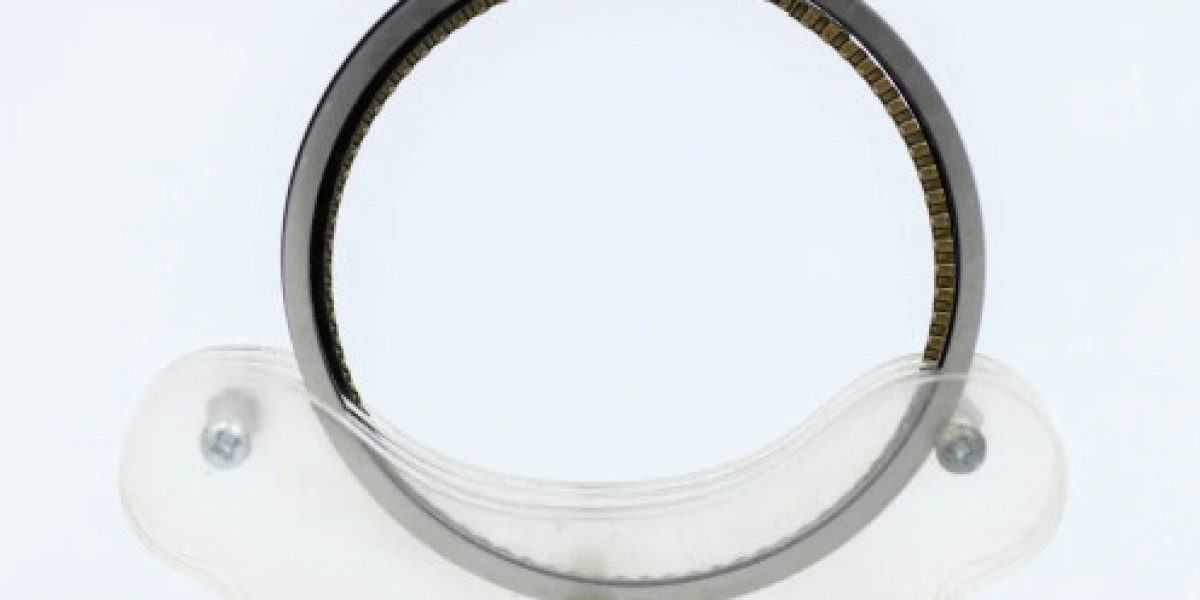In the quest for high-quality piston rings compatible with Toyota vehicles, finding suitable options can be a daunting task. This blog post aims to simplify this search by providing valuable insights and recommendations for selecting the ideal piston rings for Toyota models. Whether you are a car enthusiast or a professional mechanic, understanding the key factors that make piston rings suitable for Toyota engines is crucial. From material composition to compatibility with specific Toyota models, this guide will cover essential aspects to consider when choosing piston rings. Stay tuned to discover expert tips on selecting the most appropriate piston rings for your Toyota vehicle.
Understanding Piston Ring Functions
Engine Functionality
Piston rings play a crucial role in sealing the combustion chamber, preventing gas leakage during the combustion process. They ensure optimal compression, allowing the engine to generate power efficiently.
Piston rings create a barrier between the piston and cylinder wall, reducing friction and wear. This results in smoother piston movement, enhancing overall engine longevity.
Performance Enhancement
By maintaining proper compression levels, piston rings contribute to maximizing engine power output. This leads to improved acceleration and overall performance of the vehicle.
The precise fit of piston rings ensures that combustion gases are contained within the chamber, promoting efficient fuel burning and enhancing fuel economy.
Compression Stability
One of the primary functions of piston rings is to maintain consistent compression within the combustion chamber. This stability is essential for optimal engine operation and performance.
Properly sealed piston rings prevent oil from entering the combustion chamber, ensuring that lubricating oil remains in the designated areas. This helps in reducing oil consumption and preventing potential engine damage.
Detecting Signs of Piston Ring Damage
Common Indicators
Toyota owners should pay attention to smoke coming from the exhaust, excessive oil consumption, and a noticeable decrease in engine performance. These could be signs of piston ring damage.
Experiencing blue smoke from the tailpipe indicates burning oil due to worn-out rings. If your Toyota is consuming more oil than usual, it might suggest piston ring issues. Moreover, a drop in engine power or rough idling could point towards damaged rings.
Effects on Engine Operation
Piston ring damage can lead to decreased compression, resulting in poor engine performance and reduced fuel efficiency. When rings fail to seal properly, oil can leak into the combustion chamber, causing carbon buildup and potentially damaging other engine components.
With compromised piston rings, the engine may struggle to generate adequate power, leading to sluggish acceleration and overall poor driving experience. Furthermore, oil contamination can impact the catalytic converter, triggering emission problems and affecting the vehicle's environmental compliance.

Importance of Regular Maintenance
Preventive Measures
Regular maintenance service is crucial for preserving the longevity of Toyota piston rings. By scheduling routine service adjustments, Toyota owners can prevent premature wear and tear on these vital components.
Taking proactive steps such as monitoring mileage intervals for maintenance checks can significantly impact the overall health of the engines. Neglecting such simple tasks could lead to costly repairs and potential risks of engine failure.
Maintenance Practices
To ensure optimal performance, Toyota owners should prioritize regular battery checks and replacements when necessary. Proper lubrication during reinstallation or removal of piston rings is essential to avoid damage due to friction.
When conducting repair work, it's vital to pay attention to details such as proper calibration and installation procedures. Even a minor oversight in the process could result in improper installation, leading to further complications down the line.
Cost-Effective Solutions
By investing in high-quality parts purchases and adhering to recommended maintenance schedules, Toyota owners can mitigate the risks of unexpected breakdowns and costly repairs. Timely interventions can help avoid accidents caused by engine malfunctions.
Regular maintenance not only extends the lifespan of piston rings but also contributes to overall vehicle longevity. It's a small yet crucial aspect of vehicle ownership that can save both time and money in the long run.
Coverage for Piston Rings under Warranty
Over-the-Counter vs. Authorized Dealer
Toyota's warranty policy covers piston rings, ensuring customers receive quality service part warranty for their vehicles. When purchasing piston rings over the counter, the warranty coverage may vary compared to parts installed by authorized Toyota dealers.
Customers buying piston rings directly from Toyota dealerships can benefit from enhanced warranty protection. These warranties typically offer longer coverage periods and better terms compared to parts bought independently.
Duration and Conditions
For those opting for Toyota Genuine Parts, the warranty period usually extends from 12 months to 36 months, depending on the specific part. This extended coverage demonstrates Toyota's commitment to ensuring customer satisfaction and peace of mind.
The warranty for new pistons installed by authorized dealers often includes conditions such as regular maintenance checks at approved service centers. Adhering to these conditions is crucial to maintaining the validity of the warranty and maximizing its benefits.
Exclusions from Piston Ring Warranty
Lack of Regular Maintenance
Failure to perform regular maintenance, such as oil changes at recommended intervals, can lead to exclusions from Toyota's piston ring warranty. Without proper lubrication, piston rings are prone to wear and tear, which may not be covered under warranty.
Improper Installation or Modification
Improper installation or modifications done by unauthorized mechanics can void the warranty protection for piston rings. Any alterations that deviate from Toyota's specifications may result in exclusive remedies for piston ring issues.
External Factors and Accidents
External factors like accidents or misuse can also lead to exclusions from warranty coverage. If the damage to the piston rings is a result of an accident or improper handling, it may not be eligible for warranty repairs.
Examples of Voided Warranty Scenarios:
Neglecting regular oil changes leading to piston ring damage.
Installing aftermarket parts that impact the performance of the piston rings.
Using the vehicle in off-road conditions causing damage to the rings
.

Identifying Suitable Piston Rings for Toyota
Genuine Parts
Toyota owners should prioritize using genuine Toyota piston rings to ensure optimal performance and longevity. These parts are specifically engineered to meet the exact specifications of Toyota vehicles, guaranteeing a perfect fit and reliable function.
When it comes to purchasing piston rings, opting for genuine Toyota parts is crucial. These components undergo rigorous testing to ensure they meet Toyota's high-quality standards, providing peace of mind to vehicle owners.
Verification Tips
To verify the authenticity of piston rings, look for specific markings or codes that indicate they are genuine Toyota parts. Checking for these identifiers can help confirm compatibility with your Toyota model and prevent issues down the line.
Look for official Toyota packaging and labels on the piston rings.
Check for part numbers that match those recommended by Toyota for your vehicle model.
Seek certification or authenticity documents from reputable sellers to ensure you are getting genuine Toyota piston rings.
Installation Tips for Toyota Piston Rings
Proper Fit
Ensure the Toyota piston rings are the correct size and type for your engine model to avoid issues. Incorrect sizing can lead to poor compression and oil consumption.
It's crucial to carefully measure the bore diameter, ring end gap, and ring thickness before installation. Using the wrong size or type of piston ring can result in engine damage.
Step-by-Step Guide
Preparation: Clean the piston grooves thoroughly with a ring groove cleaner to remove any carbon deposits or debris.
Ring Orientation: Place the rings in their correct orientation according to the manufacturer's specifications.
Compression Ring: Install the compression ring first, ensuring it sits flush against the cylinder wall without any twists.
Second Ring: Next, install the second ring, making sure it is positioned correctly above the oil control ring.
Oil Control Ring: Finally, insert the oil control ring carefully into its designated groove.
Common Mistakes to Avoid
Forcing Rings: Avoid forcing piston rings into place as this can cause them to bend or break, leading to leaks and decreased performance.
Incorrect Orientation: Installing rings upside down or in the wrong order can disrupt engine function and lead to premature wear.
Overlapping Rings: Ensure that the ends of each ring meet perfectly without overlapping, which can cause sealing issues.
Remember, proper installation of Toyota piston rings is essential for optimal engine performance and longevity. Following these tips will help you avoid costly repairs and ensure your engine runs smoothly.

Summary
Understanding the functions and maintenance of Toyota piston rings is crucial for ensuring optimal engine performance. Detecting signs of damage early, performing regular maintenance, and being aware of warranty coverage and exclusions are essential steps in preserving the longevity of your vehicle's engine. Identifying suitable piston rings for Toyota vehicles and following proper installation tips can significantly impact the efficiency and durability of your engine.
For those seeking reliable information on maintaining Toyota piston rings, this comprehensive guide offers valuable insights and guidance. By staying informed and proactive in caring for your vehicle's engine components, you can enhance its performance and lifespan. Remember, regular maintenance is key to keeping your Toyota running smoothly for years to come.
Frequently Asked Questions
What are the key functions of piston rings in an engine?
Piston rings seal the combustion chamber, regulate oil consumption, aid heat transfer, and support overall engine efficiency.
How can one identify signs of piston ring damage?
Common signs include excessive oil consumption, blue smoke from exhaust, loss of power, and poor engine performance.
Are piston rings covered under Toyota's warranty?
Yes, Toyota's warranty typically covers defects in materials or workmanship for piston rings within a specified period.
What is excluded from Toyota's piston ring warranty coverage?
Exclusions may involve damage due to improper installation, lack of maintenance, or modifications not approved by Toyota.
Any tips for selecting and installing suitable piston rings for Toyota vehicles?
Ensure compatibility with your specific Toyota model, follow manufacturer guidelines for installation torque and procedures diligently.



